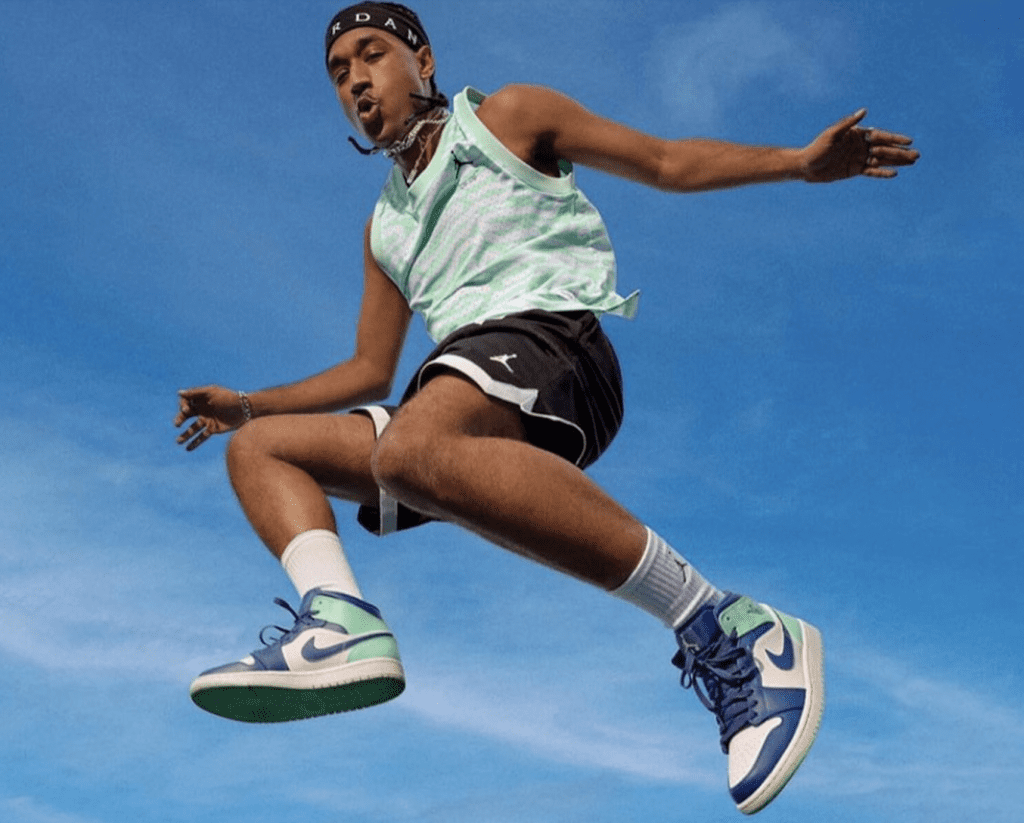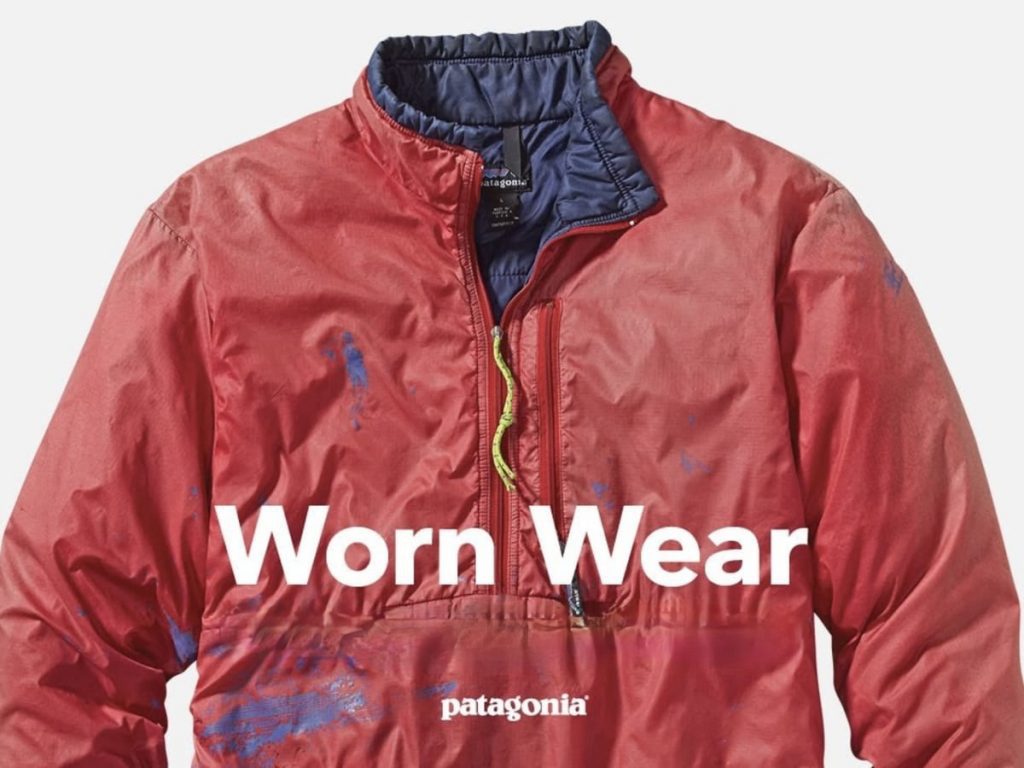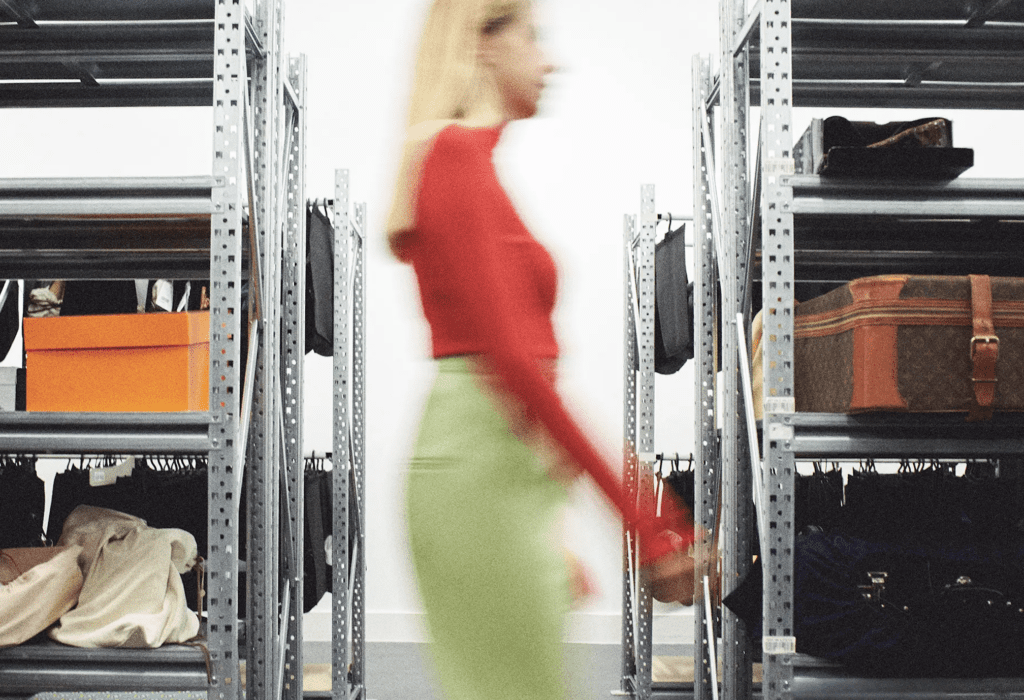Nike is adding to the list of defendants that it is facing off against in a pending lawsuit over allegedly “customized” footwear. In an amended complaint that it lodged with the U.S. District Court for the Central District of California on August 18, the Beaverton-based sportswear behemoth claims that not only is sneaker customizer Customs By Ilene, Inc., dba Drip Creationz (“Drip Creationz”) on the hook for trademark infringement and dilution, and counterfeiting for offering up modified sneakers, as well as outright fakes that bear Nike branding, affiliated entity Dripz 2.0 is similarly liable, as are the companies’ co-founders and owners Ilene Arellano, Raymond Quiroz, and Brian Porter, who Nike claims are actively trying to “hide their own infringing actions” in light of its lawsuit.
In the newly-filed amended complaint, Nike claims that Drip Creationz has been offering up and selling products “purporting to be genuine Nike products, but that are, in fact, counterfeits,” namely, “knockoff Air Force 1-style shoes that it refers to as ‘D1’ shoes,” which bear designs that allegedly infringe upon Nike’s registered trademarks for to its Air Force 1 shoes and that have “crooked proportions, messy stitching, cheap details, and [are] taller than the real Air Force 1 shoes.”
Southern California-based Drip Creationz – and the other named defendants – do not stop there, though, per Nike. In what is the most interesting aspect of the case, Nike claims that in addition to offering up the unabashedly counterfeit Air Force 1 sneakers, which it advertises as “100% authentic,” Drip Creationz and co. are also promoting and selling unauthorized footwear that they market as handmade “customizations” of Nike’s most iconic products. The problem, according to Nike, is that in creating the customized footwear, Drip Creationz deconstructs otherwise authentic Air Force 1 shoes and “replace[s] and/or adds materials.” In the process, the defendants “materially alter” the shoes “in ways Nike has never approved or authorized,” thereby, rending them infringing and/or counterfeit.
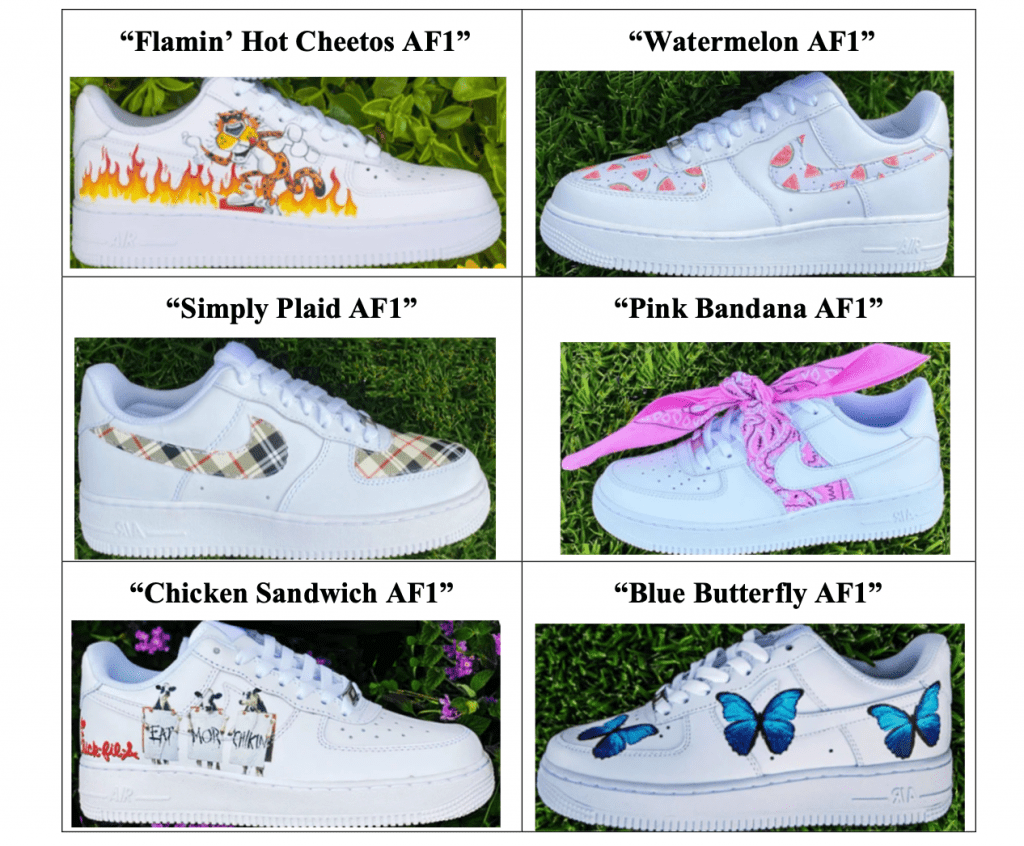
Specifically, the Swoosh argues that the defendants’ custom shoes contain “images, materials, stitching, and/or colorways that are not and have never been approved, authorized, or offered by Nike,” including “fake and unauthorized Nike Swoosh designs, as well as third party trademarks and protected images,” such as a pattern that mirrors Burberry’s trademark-protected check, Frito-Lay-owned Cheetos’ Chester Cheetah character, Travis Scott’s Astroworld graphic, and Chick-fil-A’s stylized word mark.
(Echoing claims that Nike makes in its ongoing case against StockX over NFTs, Nike takes issue with the defendants’ excessive use of elements of its branding and their claims about the authenticity of the footwear, namely, Drip Creationz’s “purported guarantee of authenticity through claims that its products are ‘100% authentic’ Nike products purchased directly through Nike’s website.” Nike alleges that “customers considering purchasing purportedly Nike-branded products from Drip Creationz are, in fact, relying solely on Drip Creationz—not Nike—to guarantee that the products are ‘100% authentic.’”)
With the foregoing in mind, Nike again sets out claims of trademark counterfeiting and infringement, trademark dilution, false designation of origin, and unfair competition in connection with Drip Creationz’s unauthorized use of an array of its trademarks, including its Swoosh logo, which it says is “one of the most famous, recognizable, and valuable trademarks in the world,” as well as its Air Force 1 word mark and trade dress. This time around, Nike claims that Dripz 2.0 is also on the hook for the aforementioned causes of action. At the same time, Nike also asserts that individual defendants – Ilene Arellano, Raymond Quiroz, and Brian Porter – are liable for the activities of Drip Creationz and Dripz 2.0, as they “authorized, directed, and participated in the infringing activities conducted by both Drip Creationz and Dripz 2.0.” This includes procuring counterfeit Nike sneakers, as well as “sourcing the genuine Nike footwear used for the infringing AF1 products.”
It is especially pressing that the individual defendants be added to the case, Nike claims, as they have “facilitated the sale of the infringing D1 footwear from Drip Creationz to Dripz 2.0 and now own a portion of Dripz 2.0.” This “sale and partial ownership are evidence that the individual defendants are using corporate entities to attempt to hide their own infringing actions,” Nike asserts, arguing that “in such a situation, the Individual Defendants must be party to a litigation to prevent continuing this process of moving inventory anytime a complaint is filed.”
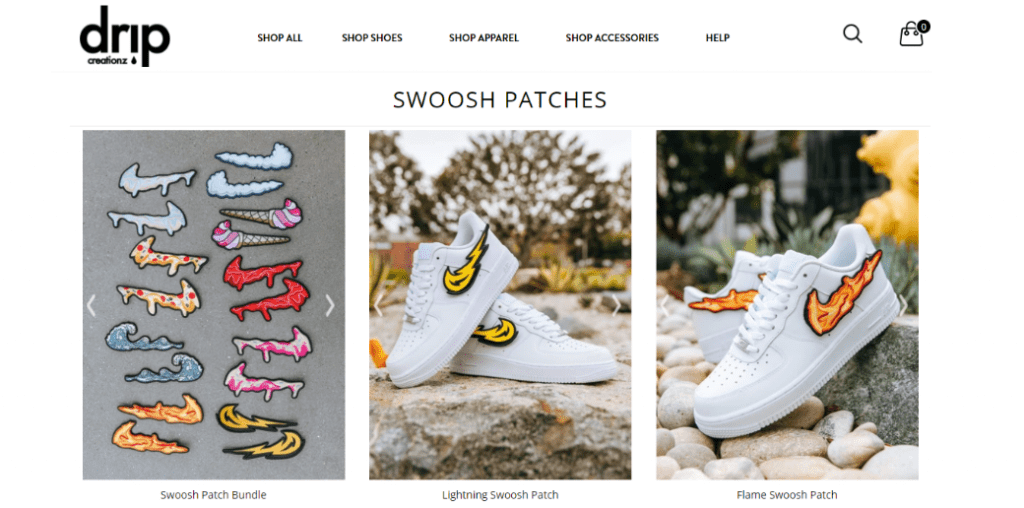
Nike is seeking monetary damages in an amount to be determined at trial, and injunctive relief to bar the defendants from further nfringing its marks and/or injuring its business reputation, among other things.
In its formal response to Nike’s initial complaint last year, Drip Creationz argued that its sale of modified sneakers that it purchased from Nike and/or authorized Nike retailers “amount[s] to a resale by the first purchaser of the original product and is, thus, protected under the first sale doctrine and does not constitute trademark infringement or unfair competition.” Counsel for the company further claimed that a critical element is missing from Nike’s complaint, namely, likelihood of confusion, as “there is no likelihood of confusion between Nike’s asserted trademarks and the trademarks and/or usages made by Drip Creationz.”
The case comes as Nike has initiated a growing number of trademark lawsuits against customizers ranging from Drip Creationz and John Geiger to MSCHF and former employee Jeffrey Waskowiak and his company KickRich LLC. The cases have been met with scorn from no shortage of Nike fans, who have accused the sneaker giant on social media of taking customizers ideas and mass producing them, while also benefitting from the culture-building that comes with exercises in customization and potential boosts to the demand for – and thus, the longevity of – silhouettes thanks to the appeal driven by particularly well-done customization projects.
In terms of what is driving the onslaught of customizer-specific litigation from Nike, a representative for the company said last summer that the company is not aiming to “limit the individual expression of artisans, many of whom are some of the brand’s biggest fans,” and noted that Nike “often collaborates with designers, artists and other creatives to innovate new products and experiences for our consumers with the Nike brand.” Instead, Nike says such litigation is the result of the fact that the brand “cannot allow unauthorized customizers to build a business using and leveraging some of our most iconic trademarks, undermining the value of Nike’s intellectual property,” as well as of its “brand, goodwill, and hard-earned reputation.” In other words, Nike says that it is simply policing its valuable trademark rights in order to maintain that value.
The case is Nike, Inc. v. Customs By Ilene, Inc., 5:21-cv-01201 (C.D.Cal.)




